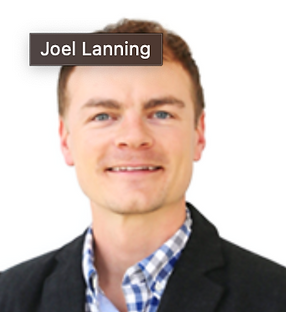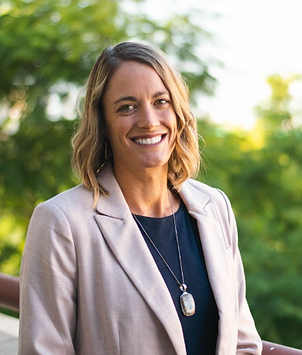Spotlight Series: Cosmos Professors
Explore the expertise of COSMOS professors through our interview series. Discover their groundbreaking research and insights into why they are dedicated to teaching at COSMOS, a leading summer program in science and engineering. Gain firsthand knowledge of their inspirations, discoveries, and commitment to mentoring future innovators.

Dr. Lanning and Dr. Struckhoff Interview


Interview conducted by Kylah Kao and Jerry Liang
Q: What inspired you to pursue a career in civil and/or environmental engineering?
Professor Lanning: I grew up watching and helping my Dad build houses as a mason and carpenter. I also watched him at home in his ability to fix just about anything. Since I was good at math and physics, and had some natural curiosity about how things worked, my parents encouraged me to pursue engineering to obtain a “desk job.” Civil engineering came about as a natural choice with that building background and was excited to be a part of large projects serving lots of people.
Professor Struckhoff: I spent part of my childhood in suburban Florida. It would rain frequently. I used to spend hours out in the rain making bridges and dams out of the sand and gravel in the road. That experience made me want to learn how to build real bridges and dams for a career.
Q: Can you discuss your current research projects or areas of interest?
Professor Lanning: My research is in the area of seismic design and structural steel design. Currently, my PhD students and I are working on improving and developing the seismic design and use of special components called buckling-restrained braces (BRBs). These braces act as a kind of shock absorber to relieve structures from large forces due to earthquake shaking. One student is studying how to best implement BRBs on bridges, while the other is exploring how to improve the design of BRB connections.
Professor Struckhoff: My research generally focuses on growing plants and algae. In the past, I have studied phytoremediation, particularly concerning the uptake of chlorinated solvents into plant roots. A recent project investigated the interplay between solar panels and green roofs.
Q: What do you find most rewarding about teaching at your teaching institution?
Professor Lanning: I teach mostly seniors, so I thoroughly enjoy getting soon-to-be graduates prepared for “the real world.” This means that I push them to rely more on their studying skills, and less on my explicit directions, and I emphasize the importance of communication and teamwork. I enjoy seeing their progression during the year where they ultimately graduate and enter into the next chapter of their lives. So many students at UCI are first-generation college students, like myself. I feel honored to be a part of that generational development and see the pride and sense of accomplishment in my students.
Professor Struckhoff: The transformative impact that we have on our students. At CSUF, over 40% of students are first-generation college students. Many, many of them are first-generation Americans. I get filled with emotion when I think about the ability that we have to provide a quality education to people whose parents may have been born with very little.
Q: What advice would you give to students who are considering a career in civil and/or environmental engineering?
Professor Lanning: My primary piece of advice for anyone considering any engineering field would be to develop a strong understanding in math and science. I don’t just mean “get good grades” in those classes. I mean you should strive to actually understand the concepts above all else. Independently seek out additional context for the skills and topics covered in your courses. What are real world examples of how those skills are applied? Where will they be applied later in your education? How do practicing engineers use them? Further, learn how to explain those concepts to others!
Civil and environmental engineering is a great career path. It’s a fairly stable career, experiencing far fewer and less intense boom and bust cycles compared to some other engineering areas. There are many options within the field as well since it spans structural, transportation, water resources, water treatment, environmental (with its own subdisciplines), and geotechnical engineering. My primary advice for those considering civil or environmental engineering is to pay close attention in your kinematic physics courses and chemistry courses
Professor Struckhoff: One thing that is really neat about civil engineering is how many potential careers can come from it. The field is extremely broad, with at least seven sub-disciplines. I recommend a Master’s degree to delve much deeper into whatever sub-discipline one chooses. The great news is that most employers will pay for that graduate degree.
Q: What skills or qualities do you think are most important for success in this field of civil and/or environmental engineering?
Professor Lanning: Personally, I think that students (and many professors) of any engineering discipline drastically underestimate the importance of “soft skills,” as evidenced by the fact that “we” even call them soft, which implies they aren’t as important. You can be a phenomenal engineer but if you cannot communicate your work efficiently and effectively to others, your impact on the world and your field will be seriously diminished. Interpersonal and scientific communication skills are crucial. In fact, since civil and environmental engineers serve the public, often they are officially public servants and work for public agencies including water and wastewater treatment organizations or state departments of transportation among many other government agencies. These engineers will also often directly interact with the public and need to be skilled at explaining the importance of public works that some in the general public may oppose without a relatable explanation. This makes civil and environmental engineers a critical part of accomplishing important developments in our built environment in both technical and nontechnical ways.
Professor Struckhoff: Time management and organization are skills that will greatly benefit an engineer. Top qualities include honesty and a strong work ethic.

Interview with Dr. Elizabeth Crook

